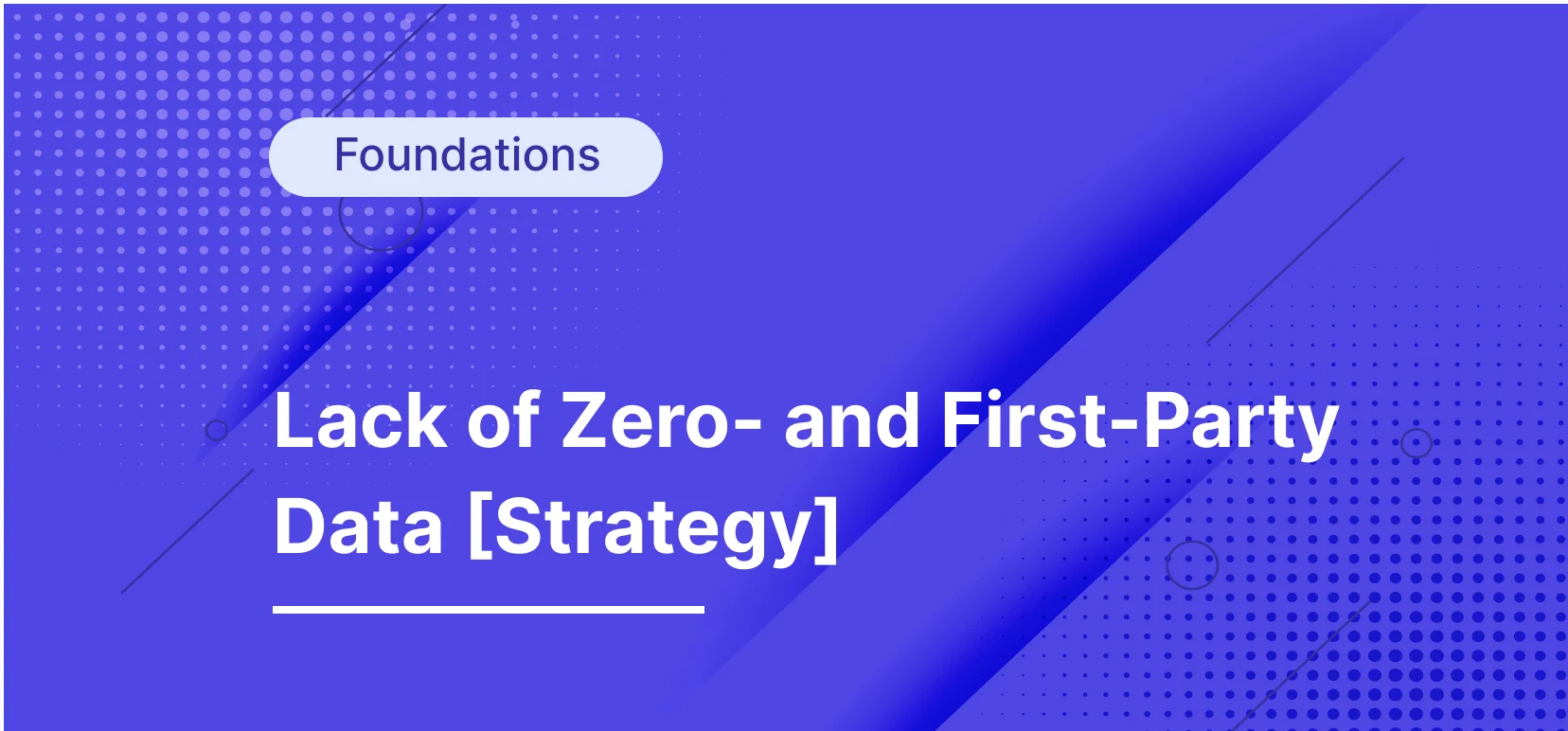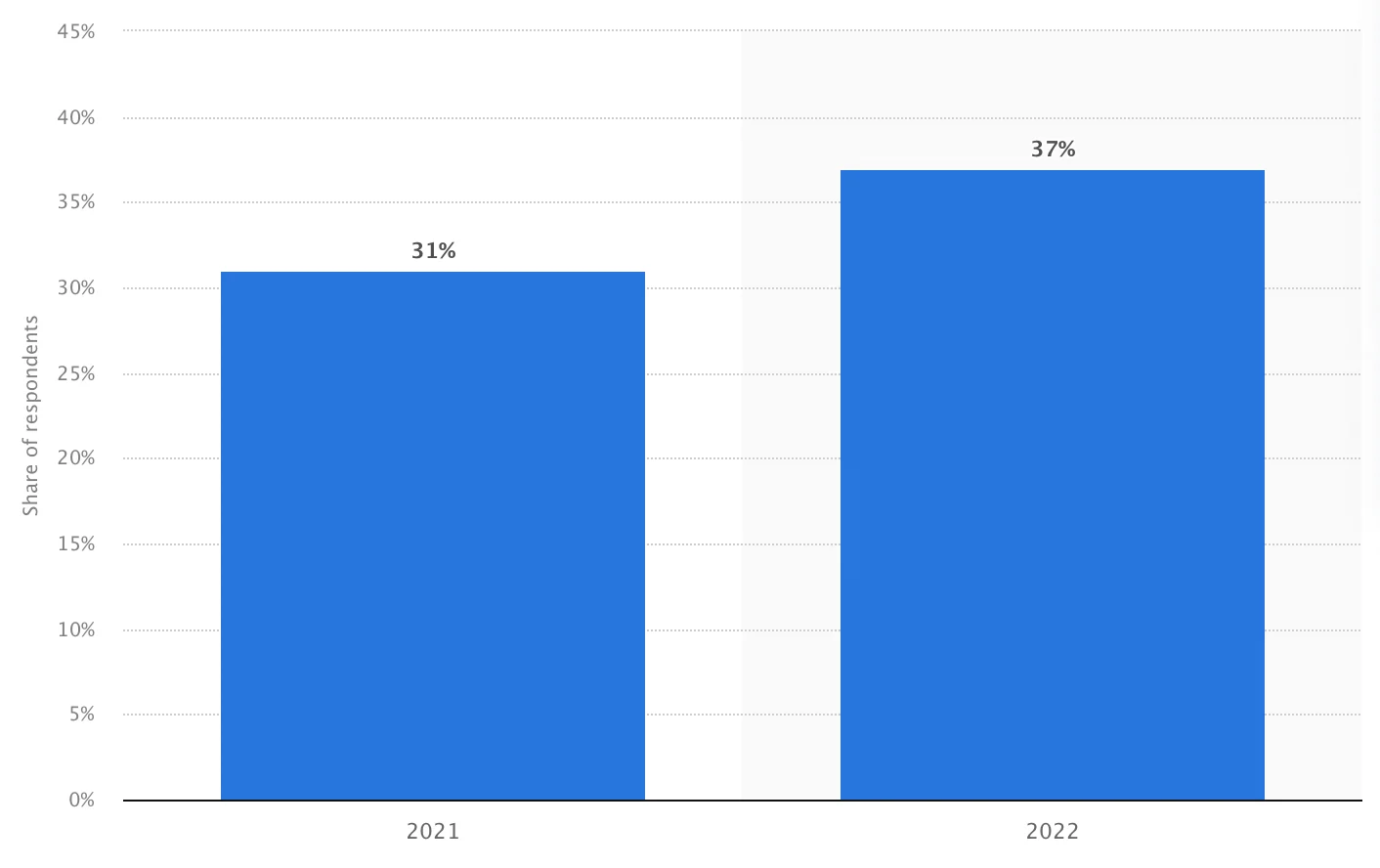- Personalization
Companies Are Failing in Personalization Because of a Lack of First- and Zero-Party Data

In today's digital age, personalization has become essential for businesses to improve customer experience, satisfaction, and loyalty. In fact, studies have shown that customers are more likely to engage with companies that offer personalized experiences.
However, despite the abundance of customer data available, many companies still struggle to deliver effective personalized experiences.
One of the main reasons for this is a lack of access to first- and zero-party data.
First-party data is the information that a company collects directly from its customers, such as their name, email address, purchase history, and website behavior.
This data is valuable for personalization because it provides insight into customers' preferences and behaviors, allowing companies to tailor their marketing and customer experience to their needs.
On the other hand, zero-party data is the information that customers willingly share with a company, such as their interests, preferences, and feedback.
This data is particularly valuable because it provides deeper insights into customers' motivations and desires, allowing for even more personalized experiences.
In the age of decreased consumer trust and increased regulations on data collection, marketers have an opportunity to improve the customer experience by leveraging their own zero-party and first-party data.
Despite the benefits of first- and zero-party data, many companies struggle to obtain this information. This may be due to a lack of resources, a lack of understanding of how to collect and use the data.
As a result, these companies miss out on the benefits of personalization and may even experience negative consequences, such as reduced customer loyalty and revenue.
In this playbook, we will explore
👉 the importance of first- and zero-party data for personalization
👉 provide examples of how companies can leverage them to improve their customer experience.
We will also discuss the benefits of using these types of data for personalization, as well as the consequences of not having access to them.
By the end of this playbook, you should have a deeper understanding of how to use first- and zero-party data to deliver exceptional personalized experiences to your customers.
Importance of Zero- and First-Party Data for Personalization

Despite the benefits of first- and zero-party data, many companies struggle to obtain this information. This may be due to a lack of resources, a lack of understanding of how to collect and use the data, or concerns over privacy and data security.
As a result, companies miss out on the benefits of personalization and may even experience negative consequences, such as reduced customer loyalty and revenue. Therefore, it is essential for companies to understand how to collect and use first- and zero-party data effectively in order to deliver exceptional personalized experiences to their customers.
The benefits of using first- and zero-party data for personalization are numerous. First-party data provides companies with insights into customers' past interactions with the company, their preferences, and their behavior. This information can be used to create personalized marketing campaigns, tailor product recommendations, and provide a better customer experience overall.
Zero-party data, on the other hand, provides deeper insights into customers' motivations and desires. By understanding what customers are looking for in a product or service, companies can create more targeted and effective marketing campaigns. They can also use this information to create more personalized product recommendations and tailor the customer experience to the individual needs of their customers.
Not having access to first- and zero-party data can have negative consequences for companies. Without this information, companies may struggle to deliver personalized experiences, which can lead to reduced customer loyalty and revenue. In addition, companies that do not collect and use customer data effectively may be perceived as less trustworthy or less credible, which can further harm their reputation.
In order to avoid these negative consequences, companies must understand how to collect and use first- and zero-party data effectively. This may involve investing in data management tools, hiring data analysts, or partnering with third-party data providers. It may also involve implementing policies and procedures to ensure that customer data is collected and used responsibly and ethically.
The Bottom Line
In conclusion, first- and zero-party data are essential for personalization and can provide companies with valuable insights into their customers' preferences, behaviors, and motivations.
By leveraging this data effectively, companies can deliver exceptional personalized experiences to their customers, which can lead to:
🚀 increased loyalty
🚀 higher revenue
However, not having access to this data can have negative consequences, so it is crucial for companies to invest in data collection and management in order to stay competitive in today's digital marketplace.
Get in touch to learn how Ninetailed personalization, experimentation, and insights works inside your CMS

![4 Benefits of Headless A/B Testing [with Examples from Ace & Tate]](https://images.ctfassets.net/a7v91okrwwe3/1rAE9Eod5ybWUHtc9LEMLo/694bd8b14495713285c6564bd4c57386/B_Testing_-with_Examples_from_Ace___Tate-.jpg?fm=webp&q=75&w=3840)